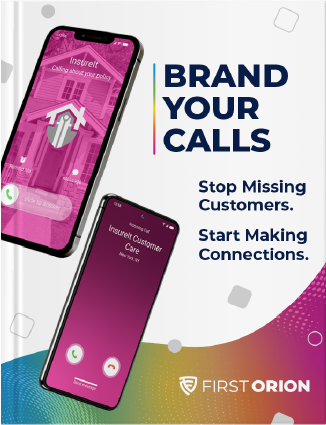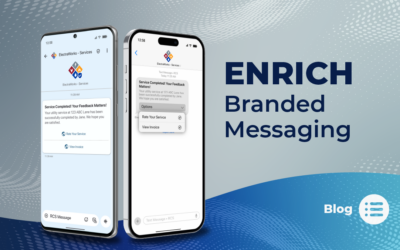Synthetic voice scams, commonly known as deepfakes, are not just sci-fi anymore. Using artificial intelligence (AI), fraudsters now launch deepfake fraud attacks by cloning voices with shocking accuracy, tricking employees, customers, and even family members into taking costly and sometimes irreversible actions. As synthetic voice scams grow more sophisticated, businesses must rethink how they protect their calls and reputation.
In 2024 alone, deepfake activity surged by 680%, fraud attempts rose by 26%, and synthetic voice fraud in insurance jumped an alarming 465%1. Even more troubling? 70% of people say they aren’t confident they can tell the difference between a real and cloned voice.2
“The threat is real and growing fast,” says Mike Lloyd, First Orion Chief Information Officer. “For companies that depend on phone calls to drive sales, serve clients, or communicate sensitive information, voice deepfakes are no longer a fringe concern; they’re a direct risk to revenue and reputation.”
What Are Voice Deepfakes?
Voice deepfakes are AI-generated audio forgeries replicating a person’s voice, tone, and cadence. With just a few minutes of recorded speech, fraudsters can create an impersonation that sounds nearly indistinguishable from the real person.
Common attack scenarios include:
- “Hi, this is your CEO”—impersonation fraud that tricks employees into wiring money
- “Mom, I’m in trouble”—emotional deepfake scams targeting parents
- “We’re calling from your bank”—fraudsters posing as financial institutions to harvest credentials
The Real-World Impact
Deepfakes are already costing businesses and consumers millions.
In one notable case, a UK energy firm lost $243,000 after a fraudster used AI to mimic their CEO and direct a finance employee to wire funds to a fake account.3
Meanwhile, people across the U.S. have received emergency calls from scammers using cloned voices of their children or grandchildren demanding bail money or emergency funds in emotionally charged situations.4
This wave of deception is causing a chilling collapse in phone call trust. Customers hesitate to answer unknown numbers, and employees question what’s real. When a fraudster uses your company’s voice or number in a scam, your brand reputation takes the hit.
SENTRY®Defends Against Impersonation
At First Orion, trust should begin before the call is answered. That’s why we offer SENTRY® Call Blocking solution that helps protect your business from impersonation attempts while ensuring your outbound communication is credible, visible, and secure.
“As voice deepfakes become more convincing and accessible, the risk to businesses and consumers grows exponentially,” says Lloyd. At First Orion, we’re focused on helping companies defend their voice channels with protection tools such as SENTRY that stop bad calls before they even reach customers.”
SENTRY is vital for enterprises with large call volumes that handle sensitive information such as financial services organizations, healthcare organizations, and insurance providers.
SENTRY can:
- Safeguard your business’s brand and reputation
- Protect customers from fraud
- Reduce costs from inbound calls related to spoofed calls
Features include:
- Real-time call blocking
- Available on all major U.S. carriers
- Can be applied programmatically for custom use cases
- Multiple secure integration methods
- Complementary to INFORM® Branded Calling
- Automated telephone number vetting
Stay One Step Ahead
Explore First Orion’s full suite of protection solutions designed to stop voice scams, authenticate your calls, and keep your business one step ahead of voice deepfake threats.
Check out our plans and pricing now and see which solution fits your needs. If you need assistance, reach out to our experts.
Sources:




